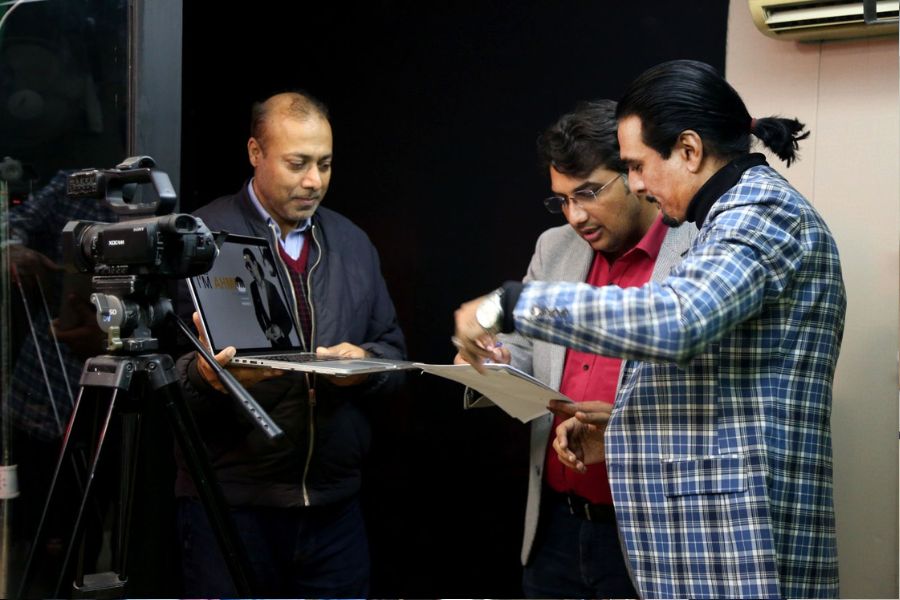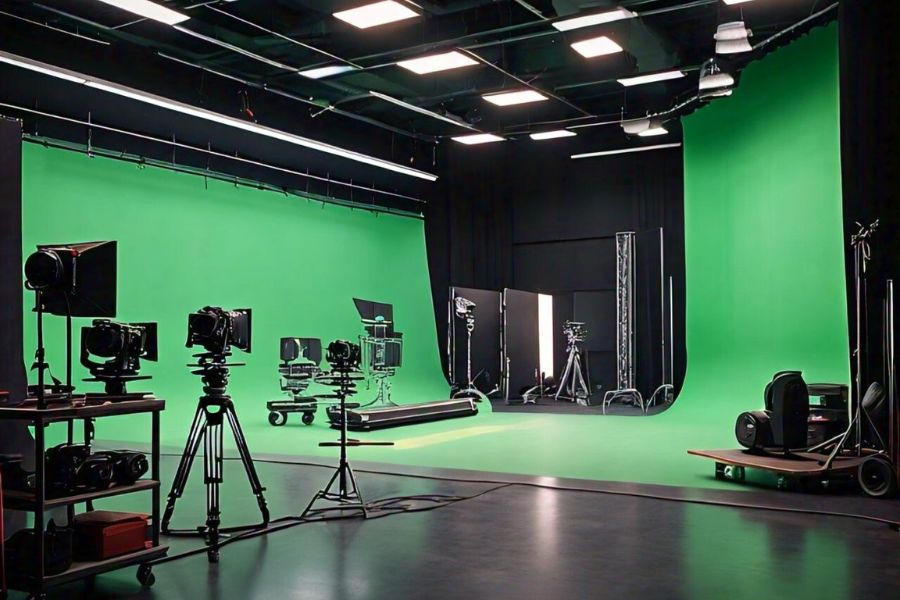Table of Contents
Introduction
As a filmmaker, choosing the right camera is crucial for capturing your vision effectively. Understand the quest for the best camera for filmmaking. In this comprehensive guide, we explore the nuances of DSLR filmmaking, mirrorless camera filmmaking and the prowess of cinema cameras, ensuring you make an informed choice in your filmmaking journey.
DSLR Filmmaking
Pros and Cons
DSLR cameras have long been heralded for their versatility in DSLR filmmaking. They offer exceptional image quality and a wide range of compatible lenses, ideal for capturing cinematic moments. However, their bulkiness and occasional autofocus limitations may pose challenges during shoots.
Pros:
Exceptional Image Quality: DSLRs have large sensors for sharper footage and better low-light performance, ideal for cinematic looks.
Wide Range of Lenses: Interchangeable lenses allow for choosing the perfect lens for each shot, from wide landscapes to tight close-ups.
Cons:
Bulkiness: DSLRs are larger and heavier, which can be cumbersome during long shoots or when mobility is needed.
Autofocus Limitations: While some DSLRs have improved autofocus, it may not match the smoothness and reliability of video cameras, leading to focusing issues in fast-paced shooting.
Mirrorless Cameras

Advantages and Disadvantages
Delves into mirrorless camera filmmaking, praising their compact design and advanced autofocus systems. Mirrorless cameras provide a quieter shooting experience, perfect for capturing candid moments. Yet, filmmakers must consider factors such as battery life and potential overheating issues, especially during extended filming sessions.
Advantages:
Compact Design: Mirrorless cameras are smaller and lighter due to lacking the bulky mirror mechanism, making them ideal for travel and discreet shooting.
Advanced Autofocus: Mirrorless cameras offer superior autofocus, especially for fast-moving subjects, ensuring sharp and focused footage.
Silent Operation: Mirrorless cameras operate silently, which is beneficial for quiet environments like documentary filmmaking or wildlife capture.
Disadvantages:
Battery Life: Mirrorless cameras have shorter battery life than DSLRs, which can be problematic for extended shoots or when carrying multiple batteries isn’t feasible.
Overheating: Some mirrorless cameras may overheat during prolonged video recording, leading to automatic shutdowns and interruptions in filming.
Cinema Cameras
Features and Considerations
Takes a cinematic leap into cinema cameras, marveling at their professional-grade features. Cinema cameras boast larger sensors for superior low-light performance, pro codecs for breathtaking image quality and modular designs for customization. However, their complexity and higher price point necessitate thorough consideration before investment.
Larger Sensors: Compared to traditional cameras, cinema cameras boast significantly larger sensors. This translates to superior low-light performance, capturing cleaner images with minimal noise even in dimly lit environments.
Pro Codecs: Cinema cameras utilize professional codecs, which are essentially the language for storing video data. These codecs offer higher bitrates, allowing for more detailed image capture with richer colors and smoother playback.
Modular Design: Cinema cameras often feature a modular design, enabling filmmakers to customize their setup with various accessories like lenses, rigs, and external monitors. This flexibility allows for greater creative control and adaptation to specific filming scenarios.
Choosing the Best
Factors to Consider
Emphasizes key factors when choosing the best camera for filmmaking, including budget constraints, skill levels, intended use (such as indie filmmaking or professional productions), and the need for specific features like 4K recording, slow-motion capabilities, and robust audio inputs.
Starting Out
Mirrorless Cameras
I recommend entry-level mirrorless cameras such as the Sony a7 series or the Fujifilm X-T line for beginners embarking on their filmmaking journey. These cameras offer a blend of affordability and essential features, laying a solid foundation for aspiring filmmakers.
Intermediate Level
Advanced Mirrorless Cameras
I suggest installing advanced mirrorless cameras like the Sony a7S III or the Canon EOS R5 for intermediate filmmakers. These cameras bridge the gap between mirrorless and cinema cameras, offering internal raw recording, improved codecs, and enhanced performance for professional-level projects.
Professional Level

Cinema Cameras
At the pinnacle of filmmaking expertise, I advocates for cinema cameras like the Blackmagic Design Ursa Mini Pro G2 or the ARRI Alexa Mini LF. These powerhouse cameras elevate storytelling with their unparalleled image quality, extensive customization options, and compatibility with high-end filmmaking accessories.
Conclusion
Choosing the best camera for filmmaking involves understanding the strengths and limitations of DSLR, mirrorless, and cinema cameras. DSLRs offer great image quality but can be bulky with autofocus challenges. Mirrorless cameras are compact with advanced autofocus but may have shorter battery life and overheating issues. Cinema cameras provide professional features but require careful consideration due to complexity and cost. Filmmakers should align their choice with budget, skill level, and project needs for optimal storytelling and visual expression.
FAQs: Choosing the Best Camera for Filmmaking
1. What factors should I consider when choosing a camera for filmmaking?
Consider your budget, skill level, intended use (indie filmmaking or professional projects), required features (4K recording, slow-motion capabilities, audio inputs), and the overall shooting environment (low-light conditions, mobility needs).
2. What are the advantages of DSLR cameras for filmmaking?
DSLR cameras offer exceptional image quality due to their large sensors, a wide range of interchangeable lenses for creative flexibility, and are suitable for cinematic looks. However, they can be bulky and may have autofocus limitations for fast-paced shooting.
3. Why choose mirrorless cameras for filmmaking?
Mirrorless cameras excel in compactness, advanced autofocus capabilities, and silent operation, making them ideal for discreet shooting and fast-moving subjects. However, filmmakers should be aware of potential battery life issues and overheating during extended shoots.
4. What are the standout features of cinema cameras for filmmaking?
Cinema cameras boast larger sensors for superior low-light performance, professional-grade codecs for high-quality footage, and modular designs for customization with accessories. They offer unparalleled image quality but require thorough consideration due to their complexity and higher price point.
5. Which camera is suitable for beginners in filmmaking?
For beginners, entry-level mirrorless cameras like the Sony a7 series or Fujifilm X-T line offer affordability combined with essential features, providing a solid starting point for aspiring filmmakers.

